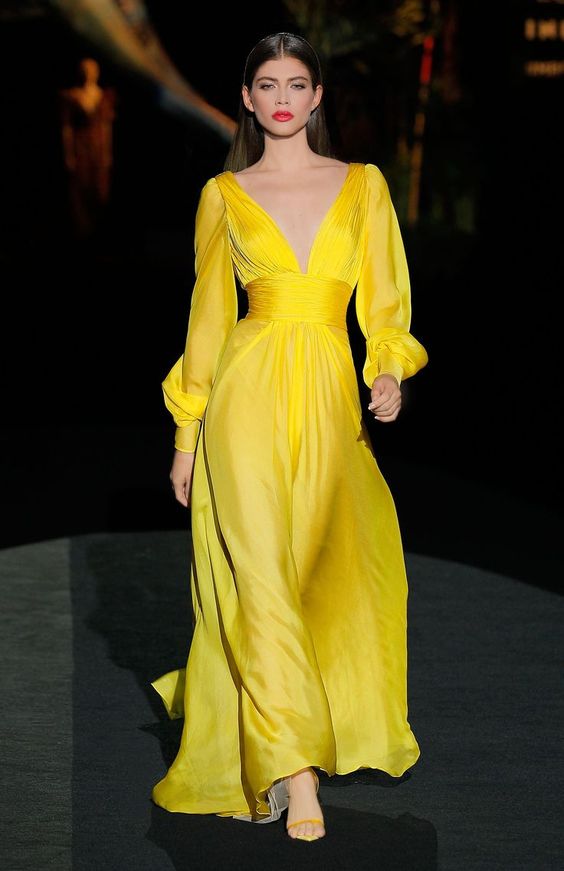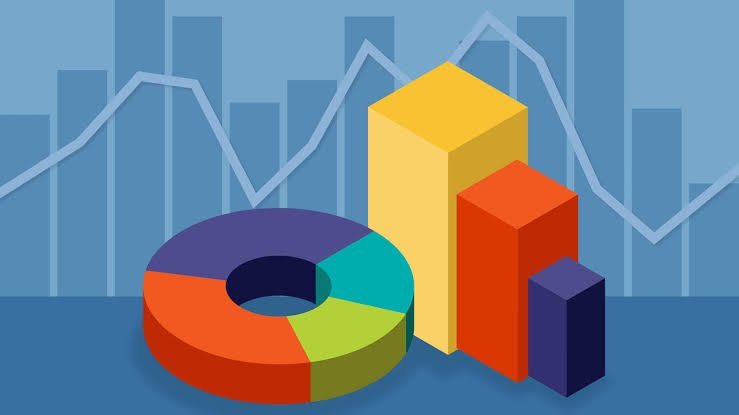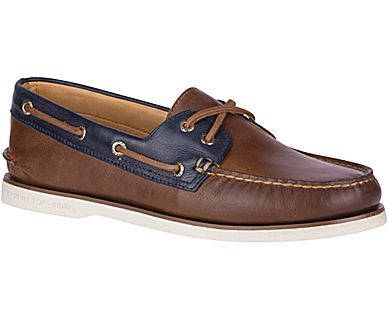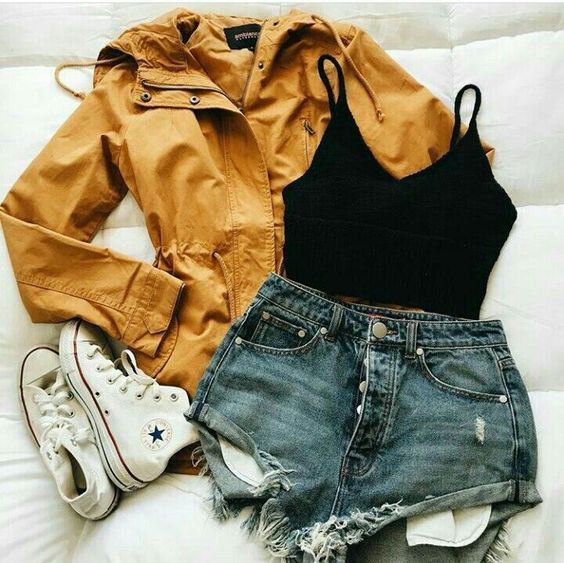Opening up a new job search can be a bit intimidating. You’re not sure what to wear, how to act, and you want to make sure that your first impression is as strong as possible. That’s why we’ve put together this guide on what to wear on a second interview. The goal is simple: make sure you look like a professional and exude confidence without coming off as arrogant or over-the-top. As a job seeker, you’ve likely had at least one second interview. These interviews are often more challenging than the first, because now your potential employer knows who you are and what you’ve got to offer. You’ll want to be prepared for some tough questions and think carefully about what you wear. When you’re interviewing for a job, it can be tough to know exactly what to wear. You want to look professional, but not like you’re going to a business meeting—and if it’s a second interview, you want to make sure you’re dressed appropriately for the first time around. That’s why we’ve put together this list of recommendations for what to wear on second interviews. We hope it helps!
When you’re going for a second interview, it’s important to dress appropriately. You want to show that you’re ready for the next step, but you also want to make sure that you’re not dressing too formally. First, consider the type of work environment. If it’s a startup or small company, you may want to err on the side of casual. This will show them that you can fit in with their culture and won’t be intimidated by it—and it’ll also help them get a sense of your personality. If the company is larger and more formal, then by all means wear something more professional! Next, think about your own personal style. Are you more conservative? Do you prefer bright colors? What kinds of clothes do your friends always look amazing in? Use these clues as inspiration when choosing an outfit for your second interview.
The first interview is typically the most formal of all your interviews, so you’ll want to err on the side of professionalism. A nice suit and a conservative necktie are all you need to wear for that first interview. If you get a second interview, though, it’s time to let your personality come out. That means a pair of slacks, a button-down shirt, and some nice shoes are perfect for second interviews. You’ll want to dress down enough that you don’t feel like you’re overdressed, but don’t go overboard—you don’t want them to think that you’re trying too hard or not taking the interview seriously! The second interview is the time to show off your personality. The first interview was all about what you can do, but now it’s time to show them why you’d be a great fit for their company. This means that you should wear something that shows off your personality and makes you feel good. It doesn’t have to be something fancy or expensive, but it does need to be appropriate for the workplace and make you feel confident. The best thing to do here is go with your gut—whatever makes you feel most comfortable in your skin will probably be right for this situation.
What to Wear on Second Interview

As a job seeker, you’ve likely had at least one second interview. These interviews are often more challenging than the first, because now your potential employer knows who you are and what you’ve got to offer. You’ll want to be prepared for some tough questions and think carefully about what you wear.
When you’re going for a second interview, you want to make sure you’ve got your best foot forward. But that doesn’t necessarily mean you need to dress up in a suit and tie.
That’s right! You can absolutely wear jeans, but we recommend adding a touch of something extra to your outfit—like a button-down shirt or a nice blazer. This will help set you apart from the pack.
Wear something comfortable, but still professional-looking. You don’t want to look like you just rolled outta bed, but if it’s not super formal, it could be too casual for an interview.
While it may be appropriate to dress more casually for a second interview, you must still dress professionally. It’s much better to be too dressed up than too casual. A good rule of thumb is to dress like your boss. Shoes should be well-polished and in good condition, not scuffed or run-down at the heels.
Dress in a manner that is professionally appropriate to the position for which you are applying. In almost all cases, this means wearing a suit. It is rarely appropriate to “dress down” for an interview, regardless of company dress code policy. When in doubt, go conservative.
You should wear a suit to interviews. “Suit” means the works: a matching jacket and pants, dress shirt, tie, coordinating socks and dress shoes. A dark-colored suit with light colored shirt is your best option.
Your suit should be comfortable and fit you well so that you look and act your best. There is a difference between not yet feeling at ease in a suit and trying to fit into the same suit you wore to your sister’s wedding when you were 15. (In the latter case, it’s time to invest in a new suit!)
Avoid loud colors and flashy ties.
Clothing should be neat, clean, and pressed. If you don’t have an iron, either buy one or be prepared to visit the dry-cleaner’s often. Shower or bathe the morning of the interview. Wear deodorant. Don’t wear cologne or aftershave. You don’t want to smell overpowering or worse, cause an allergic reaction.
Make sure you have fresh breath. Brush your teeth before you leave for the interview, and don’t eat before the interview. Don’t smoke right before an interview.
Your hair should be neat, clean, and conservative.
While it may be appropriate to dress more casually for a second interview, you must still dress professionally. It’s much better to be too dressed up than too casual. A good rule of thumb is to dress like your boss. Shoes should be well-polished and in good condition, not scuffed or run-down at the heels. They should also match your belt. You will get a great deal of use out of a good-quality pair of dress shoes in a traditional style. Ask the salesperson at the shoe store for advice. Be sure to shave the morning of the interview, even if you don’t ordinarily shave every day. If you have a full beard or moustache it should be trimmed and neat-looking. This may sound like a lot of rules, but these are the generally acceptable guidelines you should follow when deciding what to wear to an interview. Dressing professionally shows respect for yourself, the interviewer, and the company. You may not have to dress like this every day, but you are more likely to be taken seriously when you present yourself in a professional manner and take the time to attend to details.
Women
Generally, you should wear a suit with a skirt or pants. When in doubt, be more conservative.
Your suit should be comfortable and fit you well; if your waistband is cutting you in half or your jacket is too tight, you won’t look or act your best. Some stores offer free alterations when you purchase a suit, or you may want to find a tailor to adjust a suit you already own.
Interview suits should be simple and dark in color. Anything tight, bright, short, or sheer should absolutely be avoided. (Interviewers have been known to complain about the length of interviewees’ skirts; if you have any doubts, it’s probably too short.) Knee-length skirts are suggested. Very long skirts, while modest, are also considered too trendy for an interview.
Wear a conservative blouse with your suit. Do not wear bright colors, animal prints, or anything lacy, sheer, or low-cut.
Make-up and nail polish should be understated and flattering; shades that are neutral to your skin tone are generally advisable. Avoid bright or unusual colors or very long nails.
Keep your jewelry and hair accessories to a minimum, and stick to those that are not flashy, distracting, or shiny. One ring per hand is best.
Shoes should be conservative and fairly low-heeled. They should be in reasonably good condition, not scuffed or run-down at the heels. Don’t wear shoes with an open toe or back; any shoes you would wear on a date or to a club are probably inappropriate. A basic pump is flattering, versatile, and will stay in style forever (once you own pumps, you can spend the rest of your money on fun shoes). The salesperson in the shoe store can steer you in the right direction.
Your hose should be neutral (matched to your skin tone). Make sure the heels are not dyed black from your shoes and that there are no snags or runs. Only use the nail polish trick in an emergency; you may want to carry an extra pair of hose with you instead.
Dress in a manner that is professionally appropriate to the position for which you are applying. In almost all cases, this means wearing a suit. It is rarely appropriate to “dress down” for an interview, regardless of company dress code policy. When in doubt, go conservative (is this starting to sound familiar?).
Your clothing should always be neat, clean, and pressed. If you don’t have an iron, either buy one or be prepared to visit the dry-cleaner’s often.
Shower or bathe the morning of the interview. Wear deodorant. Don’t wear perfume: you don’t want to smell overpowering or worse, cause an allergic reaction.
Make sure you have fresh breath. Brush your teeth before you leave for the interview, and don’t eat or smoke before the interview.
Your hair should be neat, clean, and conservatively styled. Banana clips, brightly-colored scrunchies or elastics, and cheerleader-type ponytails look out of place with a suit. You may want to wear your hair in an updo, pull it back into a low ponytail, or wear a barrette (this suggestion does not include the tiny little barrettes that only hold the front of your bangs back). The idea is to look polished and professional, not to advertise what a creative genius your hairdresser is.
While it may be appropriate to dress more casually for a second interview, you must still dress professionally. It’s much better to be too dressed up than too casual. This may sound like a lot of rules, but these are the generally acceptable guidelines you should follow when deciding what to wear to an interview. Dressing professionally shows respect for yourself, the interviewer, and the company. You may not have to dress like this everyday, but you are more likely to be taken seriously when you present yourself in a professional manner and take the time to attend to details
This is great news because it means you’re being seriously considered for the job. Your challenge now is to impress them as much in your second interview as you did in your first.
As far as what you should wear, you may think that you should dress to impress, especially in a second interview. But you’d be wrong. Your goal should be that the way you’re dressed is so neutral that it goes completely unnoticed.
You want the attention to be focused on you and not on your clothes. Ideally, the interviewers won’t remember anything about what you wore because they were so interested in what you had to say.
You have an advantage in this regard over someone who is going to their first interview. You’ve seen what employees at the company and what the Hiring Manager and/or interview panel wears. This enables you to make better decisions as to what is appropriate.
Tips for choosing what to wear for a second interview
My best advice is to dress like the Hiring Manager was dressed for your first interview. This is probably a step up from what’s worn by the rank and file, but that’s exactly what you want to do: dress one step up from what a regular employee wears.
If the Hiring Manager wasn’t in your first interview, go with what the most well-dressed person on the interview panel wore.
There’s an exception to this. If either the Hiring Manager or the interview panel were dressed very casually in your first interview, you still should at least dress business casual for your second interview. What’s considered okay for employees is different from what is expected in an interview.
See also How Long Should You Answer An Interview Question?
The bare minimum for all interviews is business casual. This means slacks (not jeans) or a skirt, a dress shirt or blouse, a blazer, and conservative, low-heeled shoes. If no one in the interview panel met this standard, it’s still what you should wear.
Of course, for management or executive/senior-level positions, a suit should always be worn, with no exceptions.
For both men and women, conservative is the word of the day when it comes to dressing. Conservative colors, conservative patterns, conservative shoes. Conservative is always acceptable in an interview.
I actually have people ask me if it’s okay to wear their glasses to a job interview. My answer is always of course it is! You shouldn’t spend any time wondering or worrying about wearing glasses to an interview.
Unless the frames are an outrageous style, your glasses will be all but invisible and no one will give them a second thought.
Haircuts are a different matter. As a Hiring Manager, my advice for men – unless you are interviewing for a rock band -is to get that haircut before your interview. Like your clothes, you don’t want your hair to be the first thing anyone notices.
Yes, longish hair is considered fashionable for men. However, your goal is not to be fashionable – it’s to get the job. Not everyone is in favor of long hair for men and you don’t want to come across that one Hiring Manager who considers long hair inappropriate.
For women, it’s not an issue. A haircut is of course not even a consideration. What you do want to avoid are any wild hairstyles. Again, you want the focus to be on who you are, not what you look like.
See also 17 Types of Side Hustles (Ideas & Examples)
Having said all this, I’ll also say that none of it is an absolute deal-killer in an interview. But you want as many things working for you as possible, so it’s best to eliminate them as obstacles.
What to wear on senior night

What to Wear on Senior Night
The senior year is a time of change and growth. As you prepare to graduate, you may feel like you’re going through a transformation in more ways than one. You’re changing the way you look at yourself, the way other people see you, and even how you think about the world around you.
But what does that mean for your wardrobe? Your clothes don’t have to change much at all—you can still wear what makes you feel comfortable! But there are some things that might help you feel like yourself as the end of high school draws nearer.
If you’re looking for some last-minute outfit ideas for senior night, here are some ideas:
Senior night is a big deal. You want to look your best, but you also don’t want to spend too much time and money on it.
Here’s what you need to know about dressing for senior night:
-Go for a classic outfit that shows off your style and personality.
-Make sure it’s comfortable! You’ll be dancing all night at prom, so you don’t want anything too tight or restrictive.
-If you’re going with a group of friends, make sure they all have something different to wear so that everyone stands out in their own way!
If you’re a senior in high school, you probably have your senior night coming up. You have a lot to think about—what will the weather be like? Do I need to bring anything? Should I wear my cheerleading uniform or my football uniform?
Well, we’ve got some tips for you so that this night goes smoothly.
First things first: check the weather! You don’t want to show up to your big night only to find out that it’s raining or snowing. It’s not very fun being outside in cold weather (and let’s face it, you probably don’t want your hair to frizz). So check the forecast and make sure it’s going to be nice out before you make any decisions about what to wear on senior night.
When you think of senior night, what comes to mind?
Warm memories of your high school days? The last time your team was on the field together? Or maybe just a big party to celebrate the end of your athletics career?
Whatever it is, we’re sure that you have some great memories from your last time playing on the field. And now that you’re graduating, you can look back at all those memories and smile.



